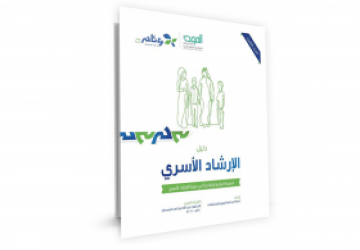
This guide discusses the design of counseling programs in family counseling, where the design of such programs is planned and organized based on scientific foundations. It includes a set of services that help individuals solve problems they face in areas of compatibility, adaptation, harmony, and overcoming psychological and social disorders, according to the goals of counseling and guidance. This leads to individual harmony and resilience against problems, as well as overcoming them in the future. This guide consists of 11 chapters, which are as follows:
Chapter 1: Foundations, principles, and approaches of counseling programs.
Chapter 2: Planning and evaluating counseling programs in family counseling.
Chapter 3: Designing counseling programs in family counseling.
Chapter 4: Effectiveness of counseling programs in addressing family problems.
Chapter 5: Differences between counseling, training, and family programs in designing counseling programs.
Chapter 6: Difficulties and obstacles encountered in building and implementing counseling programs.
Chapter 7: Applied models in building and delivering counseling programs.
Chapter 8: Skills for preparing and implementing counseling portfolios.
Chapter 9: Utilizing Total Quality Management in designing counseling programs.
Chapter 10: Skills for designing counseling programs through telephone counseling.
Chapter 11: Skills for marketing counseling programs.